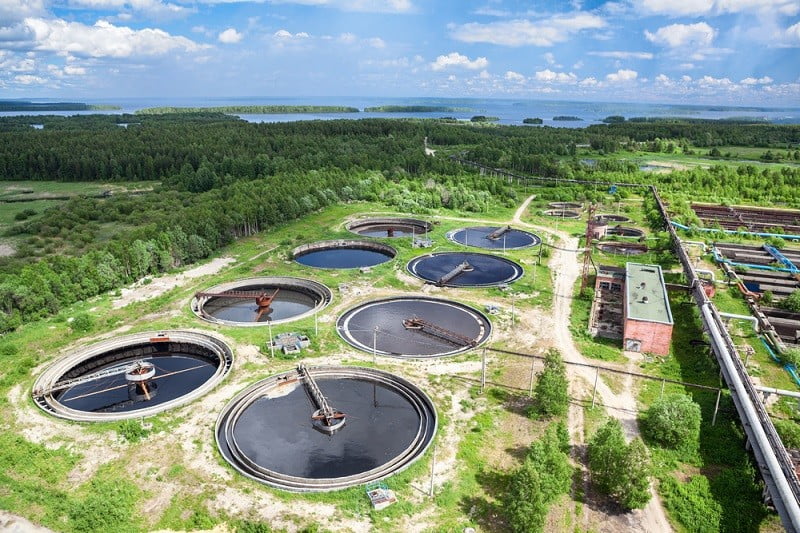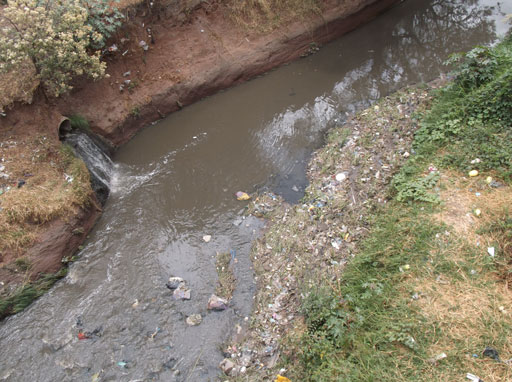Understanding the Comprehensive Refine of Fluid Garbage Disposal: Finest Practices and Environmental Influence Factors To Consider
The management of liquid waste disposal is a multifaceted problem that requires a detailed understanding of numerous finest practices and their linked ecological impacts. From the sorts of fluid waste generated to the approaches employed for collection, treatment, and last disposal, each action plays an important function in securing environments and public wellness. As governing criteria progress and technology breakthroughs, the conversation around these procedures ends up being progressively important. What effects do these adjustments hold for future sustainability initiatives, and how can stakeholders make certain that they are effectively dealt with?
Kinds of Fluid Waste
Understanding the various kinds of liquid waste is crucial for efficient monitoring and disposal techniques. Fluid waste can be broadly classified right into a number of types, each requiring distinct handling and therapy techniques.
Industrial liquid waste commonly consists of harmful materials, consisting of heavy steels, solvents, and chemicals, created during manufacturing processes. These wastes require stringent governing compliance to protect human health and the environment. Residential liquid waste primarily describes wastewater created from homes, consisting of sewer and greywater, which, although less poisonous, can still present considerable threats if poorly taken care of.
Agricultural liquid waste, including overflow from ranches, often consists of plant foods and chemicals that can lead to environmental degradation otherwise treated sufficiently. Clinical fluid waste, created from medical care centers, includes contaminated liquids such as bodily fluids and chemicals, requiring specialized disposal methods to avoid infection and ecological contamination.
Last but not least, oil and grease waste, generally created by dining establishments and automotive industries, can cause serious blockages in drain systems otherwise handled appropriately. Comprehending these groups assists in targeted techniques for treatment, conformity with laws, and efficient disposal techniques, ultimately promoting environmental sustainability and public health and wellness security.

Collection Methods
Efficient collection methods are critical for the proper administration of fluid waste, making certain that it is gathered securely and efficiently prior to therapy or disposal. Different methods are utilized relying on the kind of liquid waste generated, the quantity, and the particular features of the waste.
One typical method is using committed collection containers or sumps, which are created to record liquid waste at the resource. These systems frequently include pumps that facilitate the transfer of waste to larger storage space containers or treatment facilities. In addition, mobile collection systems furnished with vacuum cleaner modern technology are utilized in circumstances where waste is produced periodically or in hard-to-reach locations.
For commercial settings, closed-loop systems can successfully reduce spills and leaks, enabling the recovery and reuse of fluid waste. It is also essential to train personnel on correct collection protocols to minimize threats connected with unsafe substances.
Moreover, applying routine upkeep schedules for collection tools guarantees optimal efficiency and safety. The combination of advanced tracking systems can improve collection performance by offering real-time information on waste levels and possible threats. Generally, efficient collection approaches are fundamental to lasting fluid waste monitoring practices.
Treatment Processes
Therapy procedures play a vital role in the administration of fluid waste, changing possibly dangerous products into recyclable resources or safe effluents - browse around this web-site liquid waste disposal. These processes can be broadly classified into physical, chemical, and organic techniques, each tailored to resolve particular pollutants present in the waste stream
Physical therapy techniques, such as sedimentation and filtering, work by getting rid of suspended solids and particulate issue. These methods are frequently the primary step in the therapy chain, successfully minimizing the load on subsequent procedures. Chemical therapies entail using reagents to reduce the effects of dangerous compounds, precipitate heavy steels, or oxidize organic contaminants, thus enhancing the safety and security of the effluent.
Biological treatment processes, consisting of turned on sludge systems and anaerobic digestion, maximize the all-natural capacities of bacteria to weaken raw material. These techniques are particularly efficient for wastewater having naturally degradable contaminants. Advanced therapy modern technologies, such as membrane layer purification and progressed oxidation procedures, are progressively employed to achieve higher degrees of filtration.
Including a combination of these therapy methods not only makes sure conformity with governing standards but also advertises environmental sustainability by recuperating useful sources from liquid waste.
Disposal Options
How can organizations guarantee the risk-free and liable disposal of fluid waste? Efficient disposal choices are important for protecting public wellness and the atmosphere. The key approaches consist of land disposal, incineration, and therapy adhered to by discharge right into municipal wastewater systems.
Land disposal involves the careful control of fluid waste in marked garbage dumps, guaranteeing that it does not leach into surrounding soil or water. Incineration, on the other hand, subjects liquid waste to heats, converting it into Homepage ash and gases, which call for correct purification to lessen discharges. This approach appropriates for contaminateds materials that can not be dealt with via traditional ways.
In instances where liquid waste can be dealt with, organizations might select organic or chemical therapy processes to neutralize hazardous parts before discharging the treated effluent into metropolitan systems. This course normally aligns with regulative demands, making certain that the effluent fulfills security requirements.
Eventually, organizations must perform thorough analyses of each disposal alternative to establish its stability, considering aspects such as waste make-up, governing compliance, and prospective dangers to health and wellness and the atmosphere. By selecting suitable disposal approaches, companies can add to a responsible waste administration strategy.
Ecological Effect
The environmental effect of liquid waste disposal is a critical factor to consider for organizations looking for to lessen their environmental footprint. Inappropriate disposal approaches can lead to significant contamination of water resources, soil degradation, and adverse impacts on neighborhood environments. As an example, harmful fluids can leach into groundwater, positioning threats to drinking water products and aquatic life. In addition, the discharge of without treatment or inadequately treated waste right into surface area Website waters can lead to eutrophication, resulting in oxygen depletion and the succeeding fatality of fish and various other organisms.

To alleviate these impacts, companies need to take on finest practices such as applying rigorous waste treatment processes, advertising recycling and reuse, and sticking to governing standards. By taking an aggressive approach to liquid waste administration, entities can substantially reduce their ecological footprint while sustaining sustainable advancement objectives. Eventually, a thorough understanding of the ecological effects connected with fluid waste disposal is crucial for notified decision-making and liable stewardship of natural resources.
Final Thought
Efficient administration of liquid waste is important for guarding environmental honesty and public health. Inevitably, a thorough understanding of fluid waste disposal not just minimizes environmental effects but additionally cultivates a dedication to liable resource management and environmental stewardship.
The administration of liquid waste disposal is a diverse problem that calls for a thorough understanding of numerous ideal methods and their linked environmental effects. From the kinds of liquid waste produced to the methods employed for collection, treatment, and final disposal, each step plays a crucial function in securing ecological communities and public wellness.The environmental influence of liquid waste disposal is an important factor to consider for companies looking for to reduce their environmental impact. Ultimately, a thorough understanding of the ecological impacts associated with fluid waste disposal is necessary for educated decision-making and responsible stewardship of natural sources.
Eventually, an extensive understanding of liquid waste disposal not just minimizes ecological influences yet also fosters a dedication to liable resource monitoring and environmental stewardship.